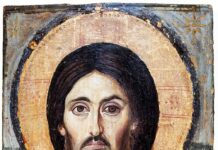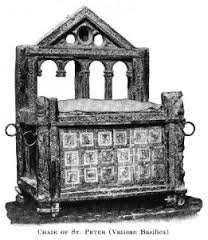We are heartened to see a few cogent rebuttals to George Weigel’s odd and indefensible defense of the nuclear incineration of the two cities of Hiroshima and Nagasaki. First Things, to their credit, responded, as did Ed Feser in the Catholic Herald, and Father Pokorsky and Jeffrey Mirus in Catholic Culture, along with yours truly in these pages.
As Saint Augustine exhorted, in what is perhaps an apocryphal statement, In necessariis unitas, in dubiis libertas, in omnibus caritas – in necessary things, unity, in doubtful things, liberty, in all things, charity.
On that note, today is the 58th (!) anniversary of the opening of the Second Vatican Council, in 1962 (as well as the memorial of Pope Saint John XXIII, who called the Council). Controversial, yes, but we must be unified in accepting the sixteen documents as part of the ‘ordinary Magisterium’ of the Church. This does not mean an uncritical acceptance of all their problematical statements, too-idealistic hopes, and tendency to irenicism, but rather a critical assimilation in the light of the ‘hermeneutic of continuity’, advocated by Pope Benedict XVI in his 2005 Christmas address. Whatever is ambiguous in the Council – and there are statements, hopes and exhortations that need to be clarified – is and must be interpreted with what the Church has taught before, in her two millennia of Apostolic succession.
Unity, liberty, charity – a much better motto than the French revolution’s. What we need is a revolution, or more properly a reformation, in the Truth.
So give thanks to God that we have a Church that stands as a bulwark of the truth, of right teaching, of the salvific doctrine that will lead us all safely to the haven of heaven.











